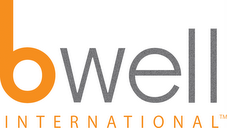In another battle between private and public healthcare coverage in
According to the Associated Press, the legislation would implement a federal tax increase of 61-cents on each pack of cigarettes, and the revenue would be used to help finance health insurance for children from families whose yearly financial income prohibits them from receiving traditional Medicare coverage, but still can’t afford to purchase a health insurance plan.
The plan is a follow-up of the Children’s Health Insurance Program, which expires on Sept. 30, and according to the AP lawmakers in both the House and the Senate support an increase in federal spending for children’s health insurance, with the House supporting a steeper increase.
The bill, which would also restructure the way Medicare dollars are spent, once again brings up the debate between private and public health insurance in
The Problem
According to a study done by the National Coalition on Health Care, 8.3 million children in the
The same study also reported that “nearly 40 percent of the uninsured population reside in households that earn $50,000 or more.”
This highlights the fact that, with health insurance costs on the rise, it is not just low-income families that struggle to pay for health insurance; middle-income families are also struggling. This legislation appears to target these struggling middle-class families, in an attempt to make sure more
The Solution
The bill highlights the thin line between free-market health insurance, which is currently failing to meet the needs of the American population, and a government-run universal healthcare system, which would be inadequate, at best.
Government run universal healthcare is not the answer for
In addition, Americans need to begin making better decisions regarding health and wellness. If we could learn to take better care of ourselves our insurance costs would go down immediately. Simply consuming healthy foods and participating in physical activity greatly reduces the risk of developing many chronic illnesses, which in turn helps reduce healthcare cost.
Another idea is to “bargain shop” for health care treatment. With new consumer directed healthcare choices, we are able to choose the doctors that provide the best quality of service for the most reasonable price. Demanding quality of service from our doctors and refusing to overpay for services can drastically affect market prices for healthcare.
Demanding that our leaders take wellness and healthcare efforts seriously is also very important. Research the different 2008 presidential candidates, and make sure your vote goes to someone committed to solving the healthcare crisis in
While these solutions do require time and effort, it is a small price to pay for more affordable healthcare. Taking these steps could ensure the fundamental idea that every child, and every person for that matter, deserves access to affordable health insurance coverage.
